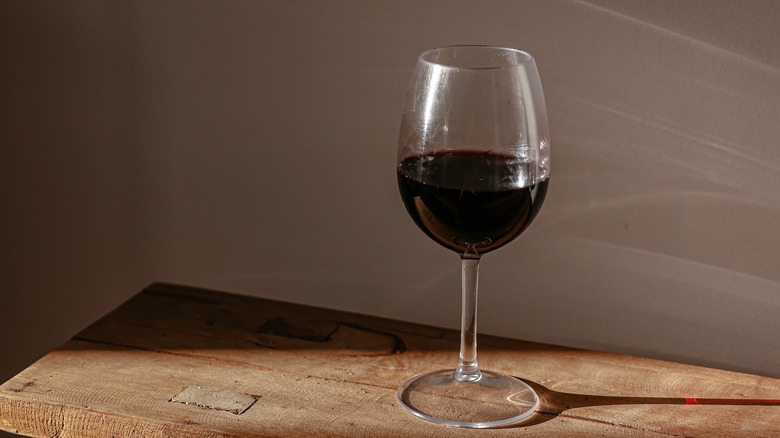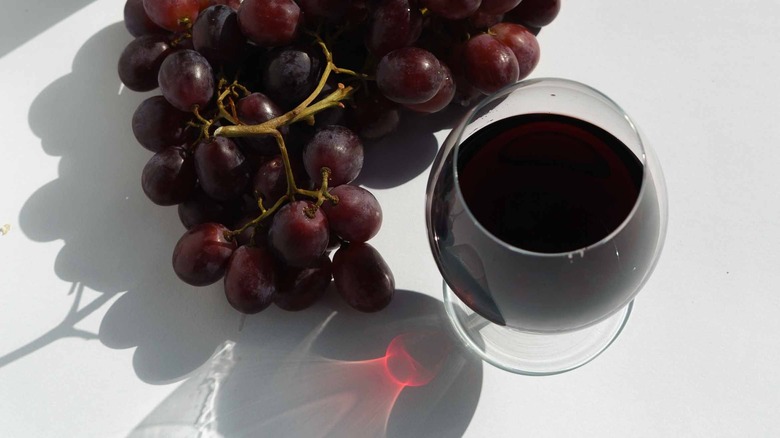Why Red Wine Usually Lasts Longer Than Others Once Opened
Whether you're a lover of Merlot, a devoted fan of Barolo, or an occasional drinker of Shiraz, you might have noticed that a bottle of red wine tends to last a bit longer than something white or, worse yet, bubbly. It isn't your imagination, red wine actually does tend to have a longer shelf life before and after opening. While you might think all wine can benefit from aging, that's not necessarily the case.
In fact, VinePair estimates that a mere 1% of the wine produced can benefit from aging, meaning that most wine should be consumed within five years of purchasing. Although deterioration can start to occur after spending one too many years on a shelf, what about the bottle of Carménère that you've just opened, but couldn't manage to finish?
At its core, wine is fermented grape juice. What makes red different from white is that the grape juice is macerated with the skins, seeds, and sometimes stems of its dark-hued grapes. According to Decanter, this imparts color, but also tannins that can give a wine structure, texture, and age-ability.
Tannins slow spoilage
As soon as any bottle of wine is opened, it faces the risk of oxidation, which can impact color, aroma, and flavor. However, Wine Cooler Direct explains that the unique thing about red wines is that they often benefit (or at least can better withstand) a bit of air exposure thanks to the presence of tannins and acids found in the wine — essentially, they both work to slow spoilage.
But even the most tannic, full-bodied reds have an expiration date once its cork has been removed. Storage can depend on the weight of the wine, which is why Wine Enthusiast notes that a delicate light-bodied red might last only three days, whereas a robust, full-bodied red can last up to six days.
Naturally, making sure red wines stay fresher for longer depends a lot on how you store them. Aside from re-corking after every pour, Wine Folly recommends storing bottles in a dark, cool space such as the fridge. Temperatures above 70 degrees Fahrenheit can start to "cook" the wine and contribute to spoilage.

